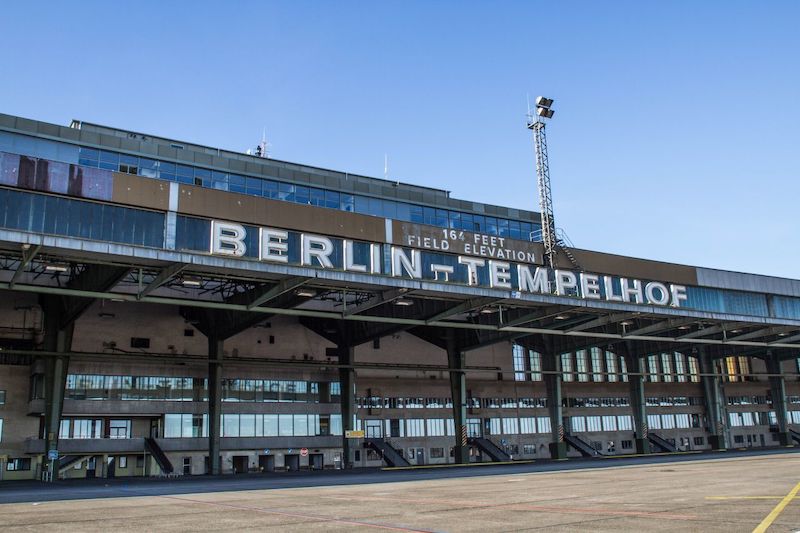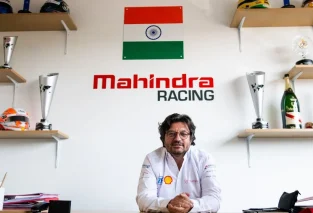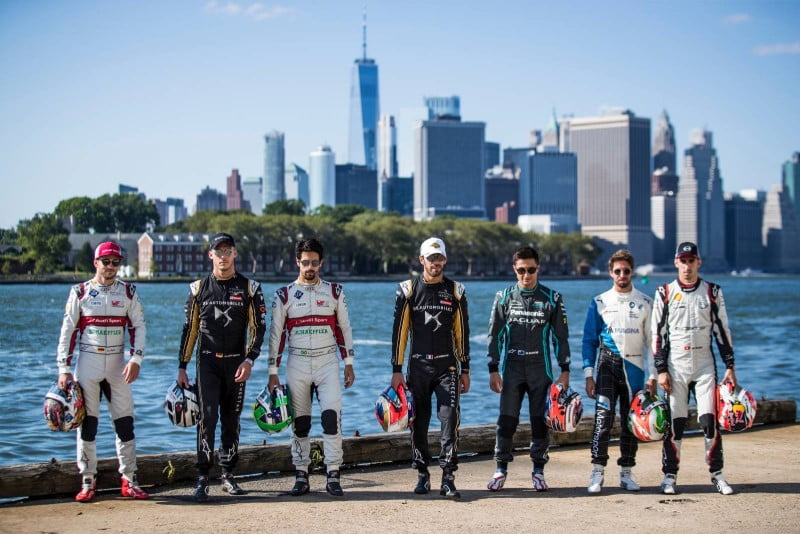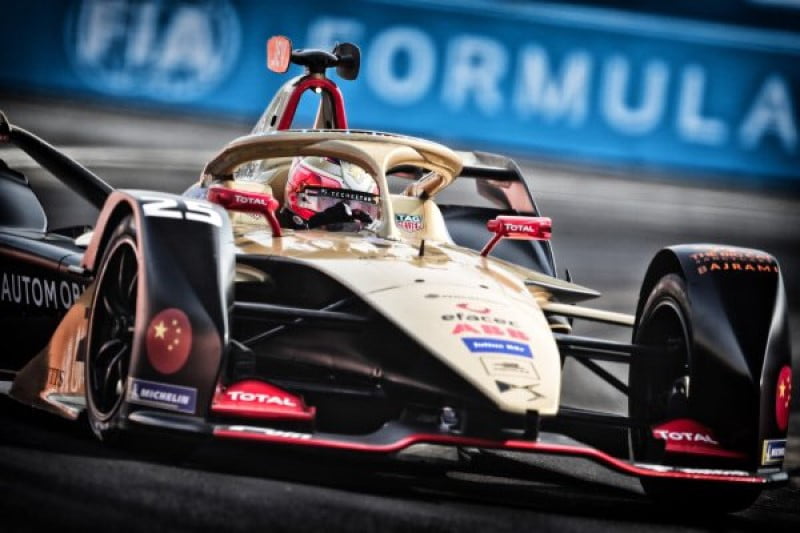With 6 races planned over 9 days, Formula E’s 2020 Berlin ePrix promises to be a fiesta for fans. Here is a summary of the key talking points from the long mid-season break.
This week, Formula E will join the list of international sporting events to have resumed operations despite the ongoing pandemic. If anything, one assumes that the comeback would have been tougher for a Motorsport series that races on city circuits. Forget circuits, accessing cities has been a fundamental challenge in recent times and Formula E has done well to adapt and evolve over the last few months. In this post, we offer a summary of the key mid-season news, driver-team changes, and more.
REVEALED! The three circuit layouts for the Formula E season finale in Berlin ??
5 and 6 August (Presented by CBMM Niobium) – Reverse Berlin Tempelhof Circuit ?
8 and 9 August – Traditional Berlin Tempelhof Circuit ?
12 and 13 August – NEW Berlin Tempelhof Circuit ? pic.twitter.com/pMs7WJaSLE
— ABB Formula E (@FIAFormulaE) July 21, 2020
Championship Challenge
Unlike the other premier Motorsport series that had a delayed start to their season in 2020, Formula E’s unique split-year format (the current season is 2019-20) meant that COVID-19 forced a mid-season pause.
The series hosted five races between November 2019 and February 2020 before being forced to rethink their plans for the remainder of 2020. Jamie Reigle, Chief Executive Officer of Formula E, said, “Since taking action to suspend our season in March, we have emphasised a revised calendar that places the health and safety of our community first, represents Formula E’s distinct brand of city centre racing and offers an exciting conclusion to the compelling season of racing we had seen so far.”
Like the previous seasons, the 2019-20 Formula E season has been an entertaining one, too – on-track and in the championship standings. Techeetah’s Antonio Felix da Costa leads the Drivers’ Championship with 67 points, 11 points ahead of Jaguar Racing’s Mitch Evans.
BMW’s Alexander Sims is third with 46 points – with a narrow margin of eight points to seventh place. Lucas di Grassi in the fifth is the highest placed former Formula E champion – with a 29 points gap to the leader whereas defending champion Jean-Eric Vergne is eighth with only 31 points. Moreover, no driver has won more than one race this season and ten drivers have stood on the podium in the first five races of the season.
In the Teams’ Championship, reigning champions Techeetah have an eight-point advantage to BMW. However, the gap widens with Jaguar Racing managing only 66 points in third place – 32 points away from the top. Indian-owned Mahindra Racing have suffered from their worst start to a season and are only 10th with 17 points. Teams from fourth to eighth place, which includes debutants Mercedes and Porsche, are separated by only 17 points – so expect a close battle in the mid-field when racing resumes this weekend.
Driver Changes
The biggest news story in the break was the series of driver changes despite the season still being in progression. Audi announced that Daniel Abt would be replaced by reigning DTM champion, Rene Rast. Abt was released after he controversially fielded a substitute in a virtual racing event – a move that was criticised by his fellow drivers. Abt, a former winner of the Berlin ePrix, will take Ma Qinghua’s seat at NIO given that the Chinese driver will be unable to travel due to COVID-19 travel restrictions.
The biggest winner of this merry-go-round is Rast, who drove one race for Super Aguri in the 2015-16 Formula E season – coincidentally at the 2016 Berlin ePrix. The 33-year-old’s career received a major fillip after dominating DTM for three seasons with Audi.
Rast said, “The demands on the drivers in Formula E are high. In addition to pure speed, it’s also a question of efficiency, battery management, and the perfect strategy – and all of this on tight city circuits, where things are usually quite turbulent.”
Tech Note: Just How Different Will Motorsport Look In Ten Years
Mahindra Racing lost the services of the uber-talent Pascal Wehrlein and decided to replace him with Alex Lynn who has formerly raced in the series with Virgin Racing and Jaguar. Brendon Hartley, the two-time World Endurance Champion, was the other driver to be replaced mid-season. His seat at Dragon Racing has been taken by Red Bull Racing’s reserve driver in Formula 1, Sergio Sette Camara.
It will be interesting to see how the drivers making their series debut or returning to the series fare under the demanding schedule of the remaining six races. While simulator sessions with their teams would definitely help them prepare, adjusting to the fast-paced nature of the series where practice, qualifying, and race are all held on the same day will be a new challenge.
2020 Berlin ePrix: 9 days, 6 races
In these unprecedented times, Motorsport series has been forced to host multiple rounds at the same venue to ensure a sizable number of races in the season. In Formula E’s case, the series has decided to race six times around the Tempelhof Airport Street Circuit in Berlin using three different circuit layouts. The aim of the different layouts is to open up different strategies while keeping unpredictability high. And of course, the safest way to host a race is to do so behind closed doors – so just like all other Motorsport series, Formula E will be ‘fan-free’, too.
That apart, the races in Berlin will also follow the ‘10 rules for behind-closed-door-racing’ as announced by Formula E. This includes reducing the maximum capacity of personnel on-site to 1,000 – a fifth of the numbers followed before.
Furthermore, roles that can be managed remotely would be encouraged to do so as will be adherence to social distancing norms, wearing of PPE/surgical masks, and more. Formula E and the FIA have worked on plans to back-up key roles and responsibilities if the need arises.
Fanboost is now OPEN for race one of the Berlin E-Prix! It will close 15 mins into the race. Don’t forget that we will plant a tree for every vote received by @thereal_JDA and @alexlynnracing https://t.co/TiQF29j4iJ pic.twitter.com/IOodW3llNe
— Mahindra Racing (@MahindraRacing) July 27, 2020
The most-stressful part about the remaining six races would be that they will be hosted over only nine days as opposed to the regular five-month period. The compressed calendar will demand as few errors in the races from both teams and drivers as possible.
For the teams, it would mean preparing for six races in one go, instead of taking each race at a time. The focus would be on using their simulation tools to the maximum to ensure a good baseline for setup as well as energy management. Given the back-to-back nature of the races, catching up might not be as easy as before.
d’Ambrosio: More Manufacturers Means A Development War In Formula E
Likewise, for the drivers, the six races will be all to play for given that over 180 points are still available in the championship. While physical fitness wouldn’t be a concern, one must remember that this is probably one of the longest gaps these drivers would have had in their racing careers.
The drivers will be working hard to shed off the ‘rust’ and the one-day format of Formula E will further add to their challenge. For the drivers, keeping mistakes to a minimum and scoring points consistently would be the not-so-secret formula to succeed. “With so many points still available, it’s anybody’s championship to take,” summed up Evans, one of the season’s eight championship challengers.
This post was first published on Firstpost















1 comments On 2020 Berlin ePrix: A 9-Day Formula E Fiesta
Pingback: Alex Lynn: Predicting Formula E Results Is Like Winning The Lottery | THE DAILY ROAR ()